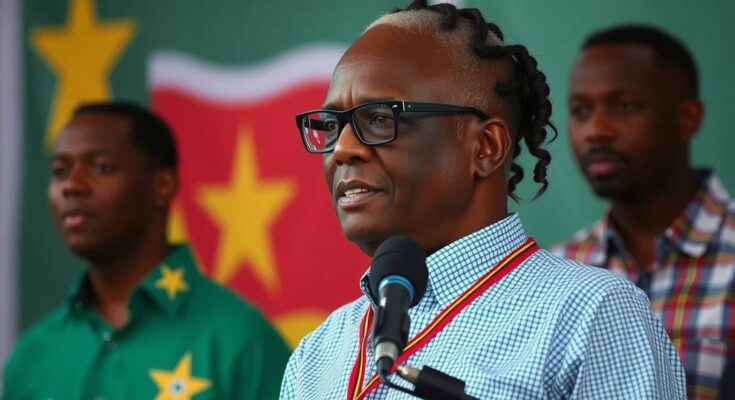Mozambique faces rising tensions as the Constitutional Council is set to validate disputed election results, with opposition leader Venancio Mondlane warning of chaos if the ruling Frelimo party is confirmed as the winner. Protests have erupted nationwide, resulting in considerable violence and unrest. Analysts predict significant disturbances regardless of the outcome, drawing parallels to previous civil uprisings in the region.
Mozambique is on the verge of escalating tensions as the Constitutional Council prepares to validate disputed election results on Monday. The pending announcement comes in the wake of a violent political standoff that has resulted in over 130 fatalities since the election, where the ruling Frelimo party was declared the winner. Allegations of electoral fraud have been raised by opposition leader Venancio Mondlane, who asserts he is the rightful victor based on an independent count. In response to the looming validation, Mondlane has threatened widespread unrest, stating that the decision of the Constitutional Council will ultimately dictate either stability or chaos in Mozambique.
Following the electoral announcement, Mondlane’s calls for a return to Mozambique have amplified concerns about potential civil disorder. Protests have already disrupted numerous urban areas, leading to significant business and transportation interruptions. The local populace, particularly younger voters, are voicing their discontent as allegations of police brutality surface amidst the unrest. On a diplomatic front, Pope Francis has urged for dialogue in hopes of diffusing the rising tensions, while the United States has heightened travel warnings regarding Mozambique ahead of the Council’s announcement, further underscoring the international community’s growing concern over the situation.
Two parties involved, President Filipe Nyusi and Mondlane, have engaged in discussions; however, significant stakes remain. If the Constitutional Council affirms the preliminary results favoring Frelimo, analysts predict an intensification of violence and disorder, with many fearing an unprecedented scale of protests. Observers liken the political climate to a potential Southern African Spring, a reference to past anti-establishment uprisings across Africa. Analysts express apprehension, asserting that regardless of the outcome, the volatility within Mozambique is likely to remain pronounced, with significant implications for the nation’s future stability.
The context of Mozambique’s current political crisis can be traced back to the elections held on October 9. The Frelimo party has maintained a stronghold over the government since the country gained independence from Portugal in 1975. Previously, the political landscape bore witness to escalating opposition movements demanding more representation and fairness. Following elections, widespread allegations of electoral fraud have emerged, specifically centered around the ruling party’s legitimacy, leading to civil unrest and international scrutiny. The populace, particularly disenchanted youth, have been vocal in expressing grievances, resulting in heightened tensions and unrest as political factions grapple for control.
In conclusion, Mozambique stands at a critical juncture where a decision by the Constitutional Council regarding the disputed election results could substantially alter the course of the nation’s political climate. With opposition leader Venancio Mondlane promising chaos should the ruling party’s victory be confirmed, the region braces for a potential outbreak of violence. The international community watches closely, advocating for dialogue while acknowledging the underlying discontent that has sparked widespread protests. Ultimately, the trajectory of Mozambique’s political stability hinges upon the forthcoming ruling and the reactions that follow, potentially marking a new chapter in the country’s history.
Original Source: www.barrons.com




